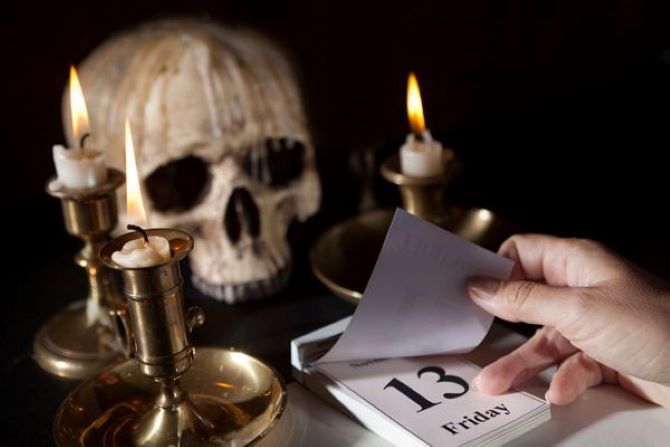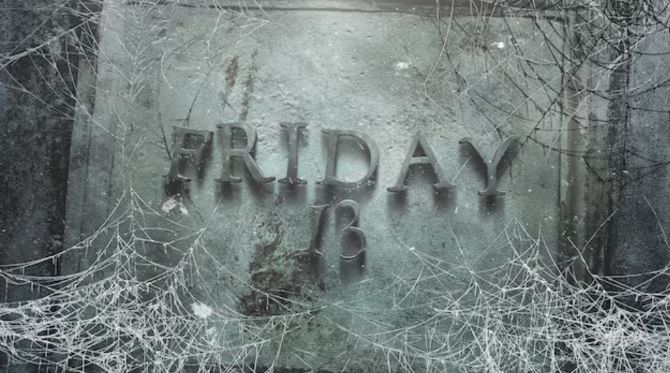On October 13, 2023, the mystical Friday the 13th will come – a date that has long been associated with superstitions, bad luck and mystical incidents. For centuries, people have viewed this day with trepidation, and many have gone to great lengths to avoid any actions they considered unlucky. But what exactly is the story of Friday the 13th and why does it continue to capture the imagination? We at Joy-pup will look at the history and superstitions associated with this mysterious date.
Bonus Video 13 Spooky Places to Visit on Friday the 13th
Origins of Friday the 13th

To understand the meaning of this day, we need to go back in time. Fear of the number 13 dates back to ancient civilizations. In many cultures, the number 13 was considered unlucky, a belief that eventually merged with the superstition associated with Fridays.
Superstitions surrounding this date can be traced from many historical and cultural sources. One popular theory is that fear of this date arises from a combination of the number 13, which is considered unlucky in many cultures, and Friday, which has a negative connotation in the Christian tradition.
In Christianity, Friday is often associated with the crucifixion of Jesus Christ, making it a day of mourning. Some also believe that Adam and Eve were expelled from the Garden of Eden on Friday. Meanwhile, the number 13 was considered unlucky due to its irregularity and connection with various historical tragedies.
There were several historical events that may have contributed to the superstitions surrounding Friday the 13th. For example, on Friday, October 13, 1307, King Philip IV of France ordered the arrest of hundreds of Knights Templar, leading to their persecution and execution. This event is often cited as one of the reasons for the emergence of superstitions.
In literature and pop culture, Friday the 13th is also well known as the name of a famous horror film franchise that features a hockey-masked serial killer named Jason Voorhees. These films only added to the mystery of this date.
On the other hand, some see Friday the 13th as an opportunity to challenge these superstitions and embrace this day like any other. And in some cultures this day is considered happy.
Superstitions and myths

The most common superstition associated with Friday the 13th is the fear of bad luck, including accidents, illness and even death.
Modern superstitions associated with Friday the 13th range from fears of black cats and stairs to avoiding making major life decisions or traveling on this day.
We’ve all heard the saying, “Breaking a mirror brings seven years of bad luck.” It is believed that this superstition originated with the Romans. They thought that mirrors contained pieces of the soul, and breaking them would harm the soul.
Crossing paths with a black cat is considered bad luck in many cultures, but is especially feared on Friday the 13th. In ancient Egypt, black cats were worshiped as gods, but in medieval Europe they were associated with witchcraft and evil spirits.
Walking under a ladder is a superstition that dates back to ancient times, when a ladder leaned against a wall would form a triangle, which was considered a symbol of the Holy Trinity. It was believed that violation of the triangle meant the presence of the devil.
Interesting facts about Friday the 13th

- The fear of Friday the 13th is so common that it has a scientific name: paraskevidekatriaphobia, and fear of the number 13 is triskaidekaphobia.
- The fear of the number 13 is so ingrained in our culture that many buildings do not have a 13th floor, and many hotels and hospitals do not have room numbers containing 13.
- Tuesday the 13th is considered unlucky in Latin American and Greek cultures, while Friday the 17th is considered unlucky in Italy.
- There is one Friday the 13th in each calendar year, but it can occur up to three times in a year.
- From 1900 to 2099, Friday the 13th occurs 688 times.
- For Friday the 13th to occur, the month must begin on a Sunday.
- In Finland, Friday the 13th is national accident awareness day, dedicated to educating people on how to prevent accidents at home, at work and in the community.
- In French Lick Springs, Indiana, there is a law that all black cats must wear a bell on their collar on Friday the 13th.







Only registered users can leave comments